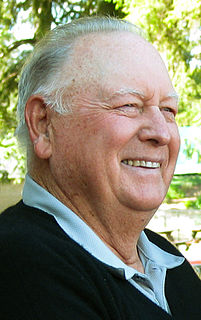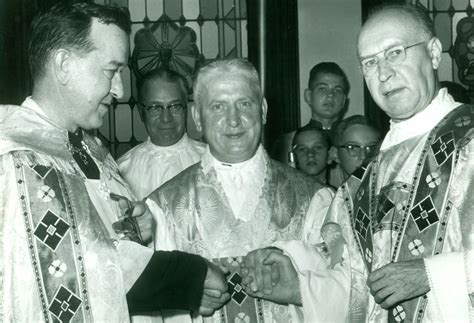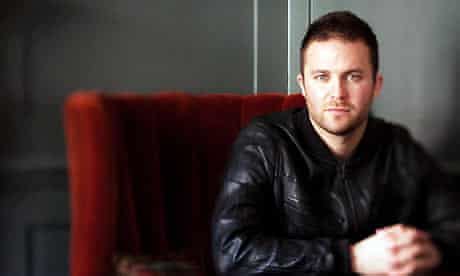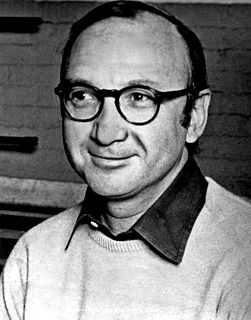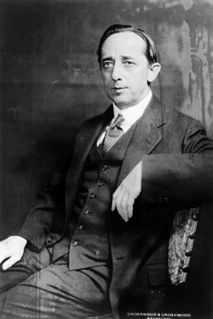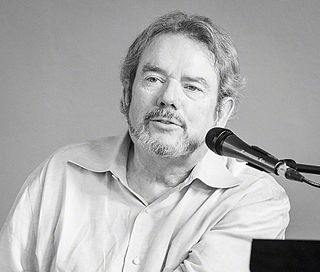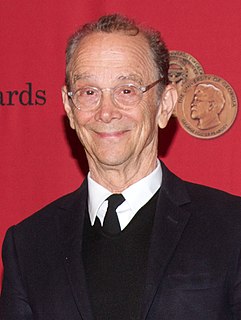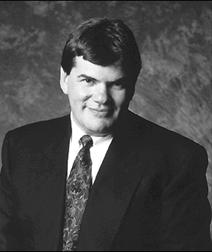Top 1200 Rewriting History Quotes & Sayings
Explore popular Rewriting History quotes.
Last updated on April 17, 2025.
I never got caught up in playing for history, seeing how many majors I could win, or rewriting the record books. Those are selfish objectives, and the guy who chokes usually does so because he dwells on what it all means to him. I was only worried about my family. And although I had my share of failures, it was never because I choked.
Collaboration is being open to each other's ideas and benefiting from each other's perspectives in an open way. Collaboration is all about rewriting and rewriting and rewriting and helping each other to constantly improve a piece. And, it's also about spurring each other on to doing really great, hard work - it's easier to do it in a collaboration than on your own.
It has been said, "History is written by the victors." I take this to mean we can make ourselves victorious by writing, and then rewriting our own stories. In a country and culture so dominated by media, by the manipulation of words and stories, telling the tales of people whose stories historically have not been told is a radical act and I believe an act that can change the world and help rewrite history.
History is a living horse laughing at a wooden horse. History is a wind blowing where it listeth. History is no sure thing to bet on. History is a box of tricks with a lost key. History is a labyrinth of doors with sliding panels, a book of ciphers with the code in a cave of the Saragossa sea. History says, if it pleases, Excuse me, I beg your pardon, it will never happen again if I can help it.
I think I became a better writer after I started writing for the New Yorker. Well, I know I did. And part of it was having my New Yorker editor and part of it is that was when I started really going on tour and reading things in front of an audience 30 times and then going back in the room and rewriting it and reading it and rewriting it. So you really get the rhythm of the sentences down and you really get the flow down and you get rid of stuff that's not important.
Good writing is writing and rewriting and rewriting and rewriting. Sometimes, it happens to work right away, and that's amazing. But most of the time, it happens to work, and then you rewrite and rewrite and rewrite, and maybe it even comes back to the thing it was in the first place, but then you know for sure that it is good, and it's what you wanted to do.
If, in schools, we keep teaching that history is divided into American history and Chinese history and Russian history and Australian history, we're teaching kids that they are divided into tribes. And we're failing to teach them that we also, as human beings, share problems that we need to work together with.
The biggest challenge for me has been in coping with my perfectionism. I have a stiflingly hard time moving forward in a project if it's not 'just right' all along the way. The trap I so easily fall into is rewriting and rewriting the same scenes over and over to make them perfect, instead of continuing on into the wild unknown of the story.
I once wrote a short story called 'The Best Blues Singer in the World,' and it went like this: 'The streets that Balboa walked were his own private ocean, and Balboa was drowning.' End of story. That says it all. Nothing else to say. I've been rewriting that same story over and over again. All my plays are rewriting that same story.
Multiculturalism is a campaign to lower America's moral status by defining the American experience is terms of myriad repressionsand their victims. By rewriting history, and by using name calling ("Racist! Sexist! Homophobe!") to inhibit debate, multiculturalists cultivate grievances, self pity and claims to entitlements arising from victimization.
I don’t know much about history, and I wouldn’t give a nickel for all the history in the world. It means nothing to me. History is more or less bunk. It's tradition. We don't want tradition. We want to live in the present and the only history that is worth a tinker's damn is the history we make today.
My books are based on the "what if" principle. "What if you became invisible?" or "What if you did change into your mother for one day?" I then take it from there. Each book takes several months in the long process of writing, rewriting, writing, rewriting, and each has its own set of problems. The one thing I dislike about the writing process is the sometimes-loneliness of it all. Readers only get to see the glamour part of a bound book, not some of the agonizing moments one has while constructing it.
We’re constantly changing facts, rewriting history to make things easier, to make them fit in with our preferred version of events. We do it automatically. We invent memories. Without thinking. If we tell ourselves something happened often enough we start to believe it, and then we can actually remember it.



